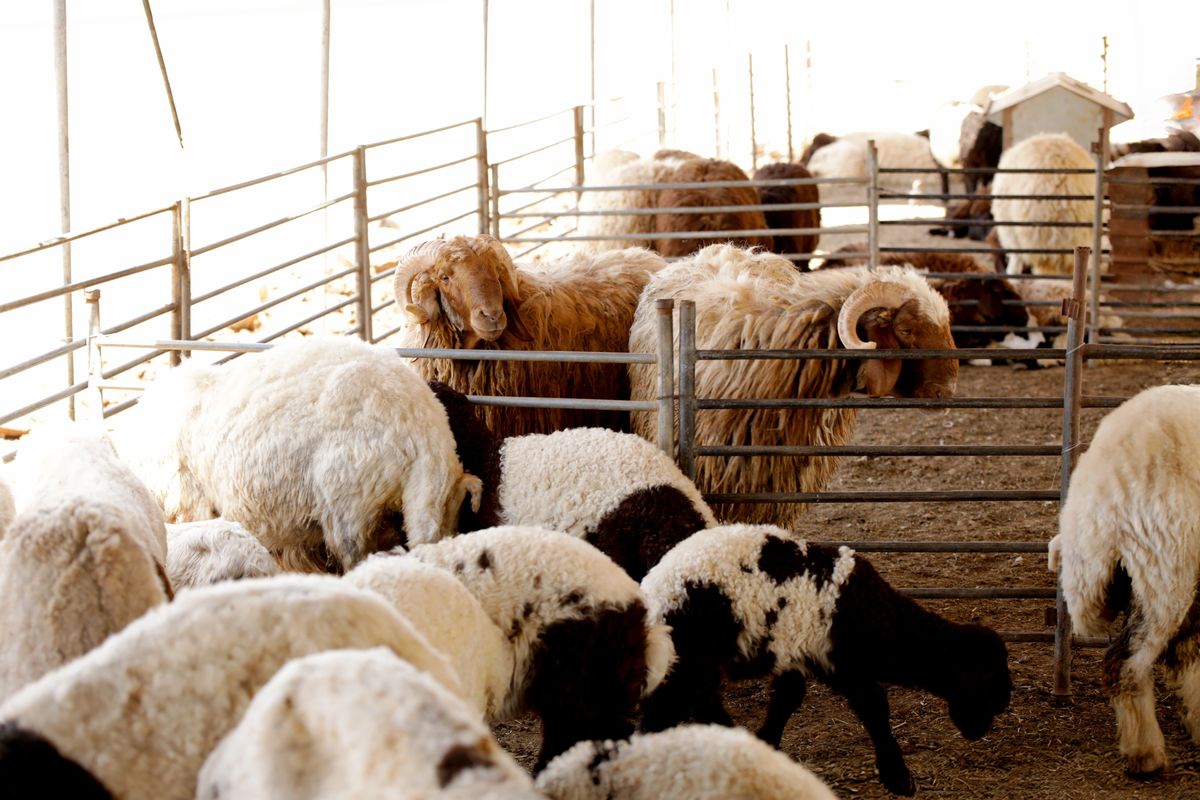Pakistan lifts ban on commercial export of live animals
Ministry will annually review and monitor live animal exports

Shahzad Raza
Correspondent
Shahzad; a journalist with 12+ years of experience, working in Multi Media. Worked in Field, covered Big Legal Constitutional and Political Events in Pakistan since 2012. Graduate of Islamic University Islamabad.

Sheep standing in a sheepfold
Shutterstock
Pakistan government has lifted the ban on commercial export of live animals including sheep and goats, which could increase prices in the domestic market.
The Special Investment Facilitation Council (SIFC) had instructed the Ministry of Food to seek approval for lifting the ban on live animal exports.
A Ministry official told Nukta that the Pakistani government in 2013 imposed a ban on the commercial export of live animals to ensure the price stability in the domestic market. Since then, there has been a complete ban on commercial export of live animals.
Ministry recommended that the cabinet approve lifting the ban on exporting live animals, with specific conditions. The sheep and goats intended for export must be male and originate from fattening farms.
Additionally, these animals must be at least one year old at the time of export, which would be permitted only via seaports and air routes.
The National Food Ministry will continue to monitor the export of live animals and will review the policy annually. This review will consider local meat needs, the quantity of exportable surplus, and aim to ensure local supply and price stability.
Promoting Investment in Livestock Farming
The government is promoting investment in livestock farming and feedlot fattening farms to generate an exportable surplus. Several domestic investors have already initiated small to medium-scale feedlot fattening farms, which are expected to produce a surplus in the coming years.
Additionally, the National Food Ministry has reached out to various countries for investment in feedlot fattening farms for both small and large ruminants, with significant interest shown by Saudi Arabia, Kuwait, and the UAE, the official said.
Pakistani meat is favorite in GCC countries, besides there are queries from different countries for supply of live animals, especially sheep and goats.
Pakistan’s meat exports reached $512 million during the FY24.
The agriculture sector contributes approximately 24% to Pakistan's national GDP. Within this sector, livestock is the largest contributor, making up 60.84% of the agricultural value added and 14.5% of the national GDP in 2023-24.
Animal husbandry is a crucial economic activity for rural Pakistan, with over 8 million rural families involved in livestock production, earning about 35-40% of their income from this sector.
In 2023-24, Pakistan's diverse inventory of food-producing animals totaled 224.7 million heads, including 57.5 million cattle, 46.3 million buffaloes, 32.7 million sheep, 87 million goats, and 1.2 million camels. This livestock produced around 70 million tons of milk and 3.447 million tons of meat, comprising 2.630 million tons of beef and 0.917 million tons of mutton, along with 2.363 million tons of poultry meat.







Comments
See what people are discussing